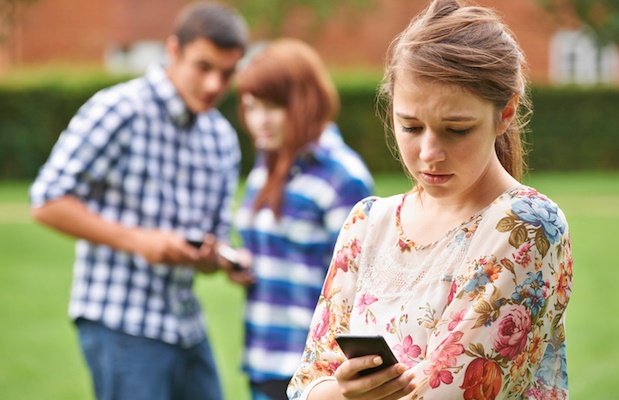
Why do bullies bully?
It's a power thing. It could, and often does, stem from a deep insecurity. Bullying someone else may bring temporary relief from feelings of anger, hurt or helplessness. Humiliating someone else fuels the bully’s power trip. And if it draws a crowd and some laughs, the bully's status is elevated socially, magnifying the power trip.
"The bully externalises that which is intolerable to themselves,” drama therapist Marlize Swanepoel from Sp(i)eel Creative Arts Therapies Collective told Parent24. “Essentially they act out their own traumas or conflicts in a very destructive manner.”
And what psychological impact does bullying have on the victim?
"There is a risk that the bullying becomes internalised by the victim," Marlize explains. "The voice of the bully can become part of the person's inner life when he or she starts to believe what was said or done to be true of who they are as people.
“Young children or adolescents who are still developing ego strength are particularly vulnerable. The bullying therefore lives beyond one or a few isolated incidents and its consequences can reach into adulthood, when the person will need some form of help or healing to overcome these internal beliefs.”
The victims aren’t the only one needing help. “The bully especially needs support and guidance to look at their inner lives in order to come to terms with their own victimhood and to stop the cycle of bullying they may be caught in,” she continues.
This, of course, doesn’t just apply to school bullies. Parents abusing their children – verbally, physically or emotionally – are nothing else than bullies. If they hurt or humiliate their child, the adult bully also needs therapy and healing to stop the cycle, as would the child, before the child also turns into a bully.
When bullying goes viral
Throw cellphone cameras and social media in the mix, and you get a whole new dimension of public humiliation and social status. The effects of power and humiliation increase exponentially.
Making it worse, the video stays with both perpetrator and victim for ever. Bullies may grow up and change, even apologise for being such an A-class jerk. I’ve seen grown men humbly apologise to another for harassing them mercilessly at school. But if it’s on video and that video made it onto the webosphere, it could haunt them for the rest of their days.
Similarly, the victim will have to contend with hundreds, even thousands, of people playing witness to their humiliation via social media and the news. And if these channels still exist decades down the line, even their future children could lay eyes on it.
"I am very interested in the added layer social media brings,” says Marlize. “I think the idea of public shaming and 'othering' is true: the victim's shame lives on and on, happens over and over again; this feeds the cycle of bully-shaming and labelling of the bully as ‘bad' continuously."
Russel Luck, technology attorney at SwiftTechLaw, says, “In the context of minors, physical bullying and cyber bullying cause immense damage to the victim and perpetrator alike. The victim is permanently degraded and the perpetrator forever tainted.
"At the core of these situations is shame for both parties and this erodes dignity – our most sacrosanct human right, protected in Section 10 of the Constitution," he continues. "People are unaware of the very effective technology law mechanisms that address such problems more effectively than our courts. A lateral solution is to use online complaints policies to remove content from social networks. This alleviates the damage caused by the viral sharing that amplifies and aggravates the situation”.
Do we need to talk about bullying? Yes. Does a video of bullying shake things up and get the debate going again? Yes it does. But how do we do it without causing long-lasting damage to the parties involved?
Social media lawyer Emma Sadleir recently commented about this on Twitter:
There is lot of debate and campaigning against the sharing of bullying videos on Twitter. The hashtags #BullyingVideos and #BlockTheBullying have been gaining momentum.
From a moral perspective, it's clear: if you see a bullying video, report it to the school principal and the involved parties' parents. DO NOT share it on social media, especially not if anyone is identifiable in the video. For more about the legal implications of sharing bullying videos, read Bullying videos: What the law says.
What are you thoughts on bullying videos? Have you or would you share a bullying video to create awareness? Send your stories and comments to chatback@parent.com for possible publication. If you'd want to stay anonymous, please state so clearly.




 Publications
Publications
 Partners
Partners














